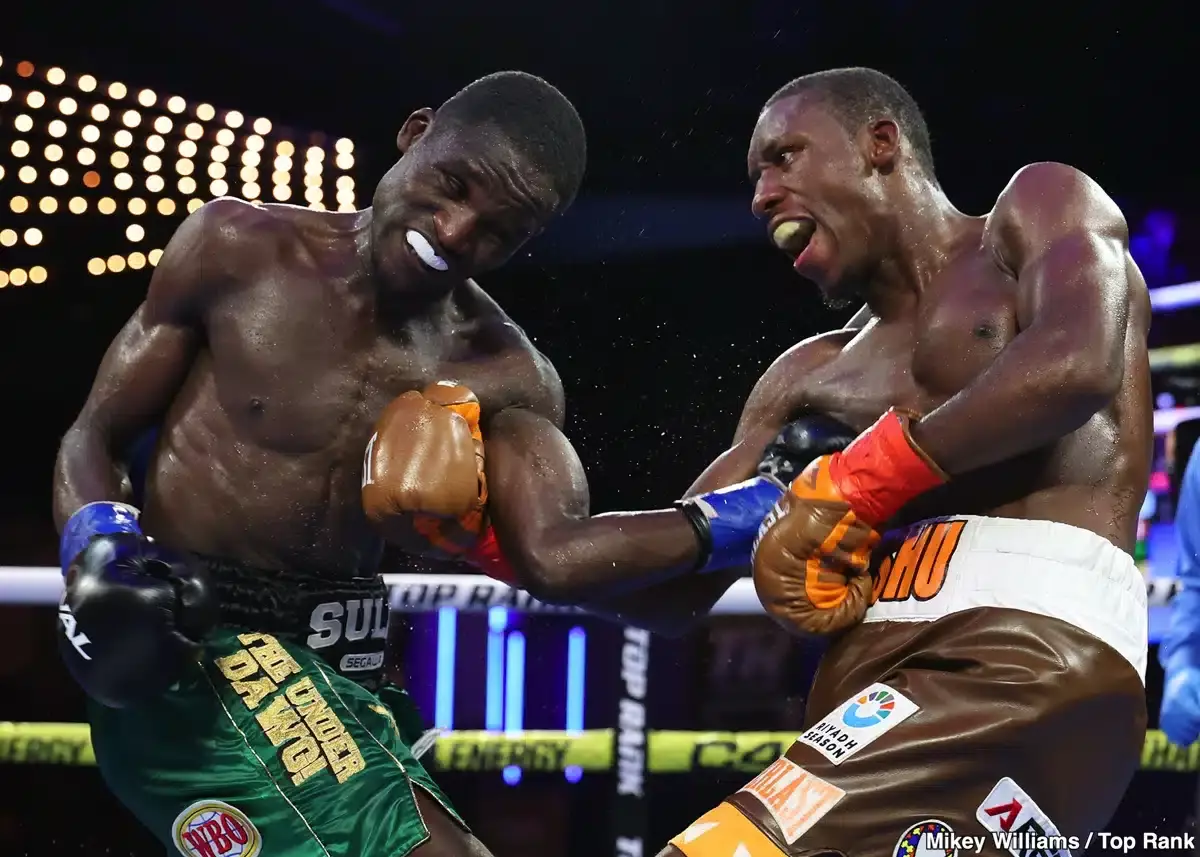In the realm of professional boxing, the judgment rendered by the judges can sometimes overshadow the performances in the ring. Such was the case on Friday night in New York when Bruce Carrington faced off against Sulaiman Segawa in a highly contentious featherweight bout. The majority decision awarded to Carrington (13-0, 8 KOs) over Segawa (17-5-1, 6 KOs) left many fans and experts bewildered, illuminating the complex dynamics of local favoritism in sports.
From the outset, it was evident that Segawa, the more seasoned contender, came prepared with a strategy that exploited Carrington’s weaknesses. While Carrington entered the fight as the heavily favored prospect with rankings of #1 by the WBA and #2 by the WBC, he struggled to connect effectively against Segawa’s fluid style. The first two rounds were particularly punishing; Segawa not only landed significant shots but also demonstrated superior ring generalship that had Carrington on the defensive. Observers noted that Carrington’s apparent lack of output and hesitance to exchange punches after the fifth round essentially sealed his fate in the eyes of many ringside spectators.
The judges’ scorecards—95-95, 97-93, and 97-93 in favor of Carrington—sparked immediate outrage, particularly considering the overwhelming sentiment that Segawa had performed well enough to claim the victory. A notable disparity emerged, as independent analysts like Boxing247 scored the bout 99-91 in favor of Segawa. Such inconsistencies not only raise questions about the competence of the officiating but also bring to light the troubling trend of ‘hometown decisions’ in boxing, where local fighters may receive undue benefit from biased judging.
The incredulity extended beyond just fans; even seasoned commentators like ESPN’s Tim Bradley expressed disbelief over the decision, further validating the outrage felt by the attendees. This stark contrast between public opinion and the official ruling has illuminated an ongoing issue within the sport—one where the integrity of the judging process is called into question.
In the aftermath of such a controversial bout, the path forward for both fighters is uncertain. For Carrington, the question arises whether he will have an opportunity to mend his reputation with a rematch against Segawa, who clearly outperformed him. However, a strong case could also be made for slowing Carrington’s progression, allowing him to refine his skills before stepping back into the ring against elite competition.
Segawa, meanwhile, has proven himself as a formidable opponent and would likely benefit from a post-fight surge in recognition and confidence. The boxing community awaits the decisions of Top Rank, which could potentially reshape the trajectories of both fighters.
The aftermath of this bout illustrates the necessity for transparency and fairness in the sport of boxing. With heightened scrutiny on officiating, fans and analysts alike are left to ponder the implications of decisions that can alter careers and reputations in a sport where perception can be as significant as performance.

